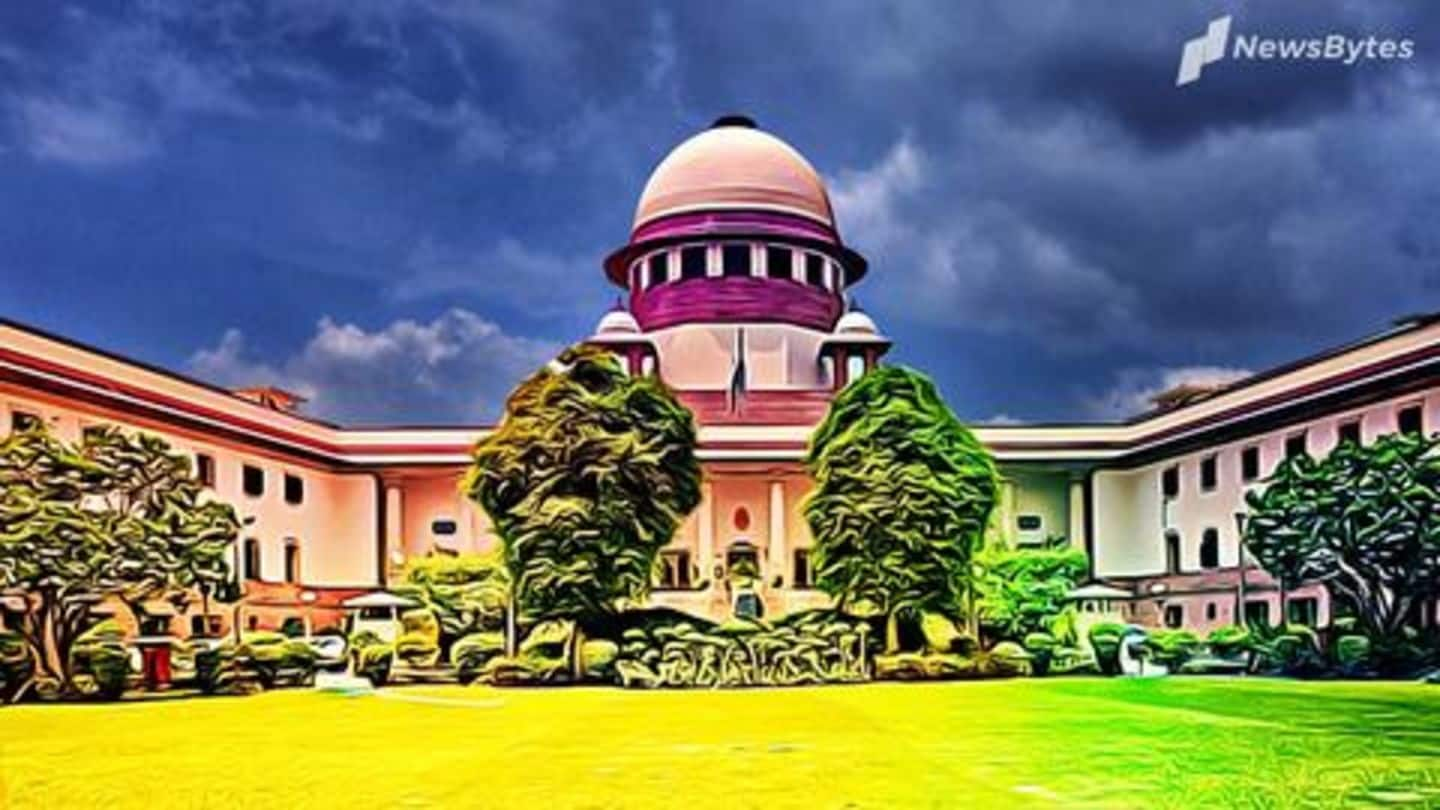
Sabarimala review: SC grants parties three-weeks' time to file suggestions
What's the story
On Monday, a nine-judge constitutional bench of the Supreme Court began hearing pleas relating to discrimination that women face in places of worship like Sabarimala, mosques, and Parsi temples. The top court is hearing as many as 60 petitions and has given all lawyers three weeks' time to frame issues. A lawyers' meeting has been convened on January 17. Here are more details.
Context
Background: How is Sabarimala issue related to these pleas?
Had it not been for Sabarimala Temple issue, a constitutional bench wouldn't have been formed to deal with wide-ranging issues. In November 2018, a bench, headed by former Chief Justice Dipak Misra, allowed menstruating women to enter Lord Ayyappa's famed temple in Kerala. The landmark judgment overturned a centuries-old tradition but also sparked protests. Later, a bunch of pleas seeking review was filed.
Details
Last year, the matter was referred to larger bench
In November last year, a five-judge bench, headed by then CJI Ranjan Gogoi, said it couldn't give an order on review pleas as it wasn't well-equipped. The bench noted Sabarimala isn't the only place of worship where women are banned and referred the matter to a larger bench. Hence, the new bench is hearing several matters dealing with religion and women's rights.
Issues
The 2018 Sabarimala verdict won't be reviewed
The new bench is headed by CJI SA Bobde and includes Justices R Banumathi, Ashok Bhushan, L Nageswara Rao, BR Gavai, SA Nazeer, MM Shantanagoudar, R Subhash Reddy, and Surya Kant. "We are not hearing review pleas of Sabarimala case. We are considering issues referred to by a 5-judge bench earlier," SC said today. Female genital mutilation could also be discussed.
Reference
Why is a nine-judge bench hearing the matter?
Usually, a five-judge bench refers matters to a seven-judge bench, but this case is different. This happened as judges who signed 2019's order found contradictions in two judgments of SC. In 1954, a seven-judge bench said religious matters must be solved by religious heads, but in 1962, a five-judge bench opined that a court can meddle in matters which it feels are superstitious.
Looking back
With nine-judge bench, SC hopes to end sensitive matters
A statement of CJI Gogoi-led bench shows it wanted to end sensitive matters. The bench had said, "The decision of a larger bench would put at rest recurring issues touching upon the rights flowing from Articles 25 and 26 (rights to profess and practice religion) of the Constitution of India." The nine-judge bench doesn't include any judge who signed the 2018 or 2019 order.
Details
Secretary-General to convene lawyers' meeting for smooth hearing
Today, when Solicitor General asked the top court whether the issue of polygamy will be discussed, the bench said it will only concern itself with questions raised in 2019's order. Thereafter, SC's Secretary-General was directed to convene a meeting of all lawyers. The lawyers are expected to discuss matters like re-framing or addition of issues, allocation of issues, and division of time.